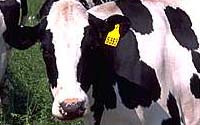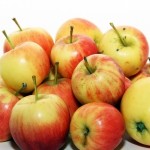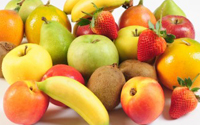FRUIT JUICE OR MEAT JUICE?
By LILLIE GARCIA-SANTOS
As a person who has only recently turned vegan, choosing food to eat is like entering a minefield; not eating anything that is a product of an animal is a simple concept yet things that you might ordinarily assume are vegan, couscous for instance, mysteriously contain dehydrated milk or powdered egg yolk.
Another food I assumed would be suitable for a vegan was fruit juice. After all, when you choose the fresh juices it says ‘100% pure juice’ on the bottle. So what could possibly be wrong with that?
However it seems my delicious, and safely vegan, fruit juice may contain animal products!
 Through the social medium of Instagram, I read briefly how some fruit juices in the US are not labelled as ‘suitable for vegetarians’ therefore inferring that some poor animal has died to produce this tasty juice.
Through the social medium of Instagram, I read briefly how some fruit juices in the US are not labelled as ‘suitable for vegetarians’ therefore inferring that some poor animal has died to produce this tasty juice.
Horrified, I Googled the question ‘fruit juice or meat juice?’ to begin researching the topic for myself. A huge number of results appeared suggesting that the smoothie and juice industries use animals in a wide range of their products.
For example, there were suggestions of some sort of concoction derived from beef gelatine being used to clarify the juices; ground up beetles used to add pink or red colourings; fish oils added in order to introduce extra amino acids; and a wax named shellac (made from insects) is used to coat citrus and other fruits in order to increase their shelf life.
After digesting these discoveries and removing all fruit juices from my fridge in panic, I began attempting to contact what I believe to be the two most prominent fruit juice companies in the UK; Tropicana[1] and Innocent[2]. Neither company label their products as ‘suitable for vegetarians’, therefore I wondered if there is something going on behind the scenes in the production line.
Both Innocent and Tropicana provide phone numbers for product enquiries and Innocent also offers an email address. I began by emailing Innocent asking the following questions;
- Is there a use of fish oils to introduce amino acids to some of your fruit juices?
- Are your citrus fruits coated with animal derived wax to preserve them during transportation and shipping?
- Are your smoothies coloured through the use of insect or animal products?
- Are any animal derived products used in the making of your fruit juices and smoothies?
The reply soon came from Innocent assuring me that ‘all of our drinks are suitable for vegetarians…’[3] which seems a simple and easy response although somewhat of a sweeping statement, especially considering what followed. I was also assured that the Innocent drinks don’t contain any fish oils – hence their suitability for vegetarians.
However, the representative from Innocent then went on to say in terms of suitability for vegans, (and I learnt an important lesson myself here) all fruit in the supermarket gets a coating of shellac.
Shellac is a product derived from the protective shell or cocoon of the Laccifer lacca insect[4], and it is used in the fruit industry to extend the shelf life of fruit. The lac resin is “harvested before the males have emerged from their cocoons, and the sticklac is dried in the sun to kill the beetles”.
Based on this many vegetarians would prefer to avoid these products as animals were killed during their production.
Innocent does claim to source fruit grown especially for them – which hasn’t been coated on shellac as it is rapidly processed into juice and therefore does not need an extended shelf life. However they admit that they do occasionally buy ‘great tasting fruit destined for fruit bowels instead…’ This means therefore it is possible that very small quantities of shellac could be introduced into the smoothies thus making it non-vegan, and arguably non-vegetarian as well.
Finally Innocent also claims to have spoken to The Vegan Society and explained the very small chance of their drinks containing shellac and The Society was not happy to declare them suitable for vegans.
Although, as a vegan, I am not comfortable drinking Innocent smoothies I was impressed by the speed of their reply and their openness about the animal ingredients.
However I cannot commend Tropicana in the same way. As mentioned previously, I also attempted to contact Tropicana, a company owned by PepsiCo and based in the United States. Tropicana made me jump through a number of hoops before I was even able to email them with my questions – and in the four weeks since I have not been provided with a response, despite chasing them on a number of occasions.
 So I will be boycotting all Tropicana products – as a consumer I have the right to know what is in the juice I am drinking, and if they are unwilling to tell me then I have assume there are ingredients in there that I may find distasteful.
So I will be boycotting all Tropicana products – as a consumer I have the right to know what is in the juice I am drinking, and if they are unwilling to tell me then I have assume there are ingredients in there that I may find distasteful.
So it seems that in answer to the question ‘fruit juice or meat juice?’ the answer is, unfortunately, ‘meat juice’.
About the Author:
Lillie Garcia-Santos is a second year student from London studying English Literature at The University of Sussex. With a passion for animals, health and the environment, Lillie is a newly converted vegan and loves it. In her future Lillie hopes to become a travel journalist and hopes one day to live in a totally eco-friendly house in London
[1] Tropicana UK (“We”) Pepsi Co www.tropicana.co.uk
[2] Innocent Drinks http://www.innocentdrinks.co.uk
[3] Rio at Innocent drinks
[4] Angel Flinn http://gentleworld.org/shellac-food-glaze/
